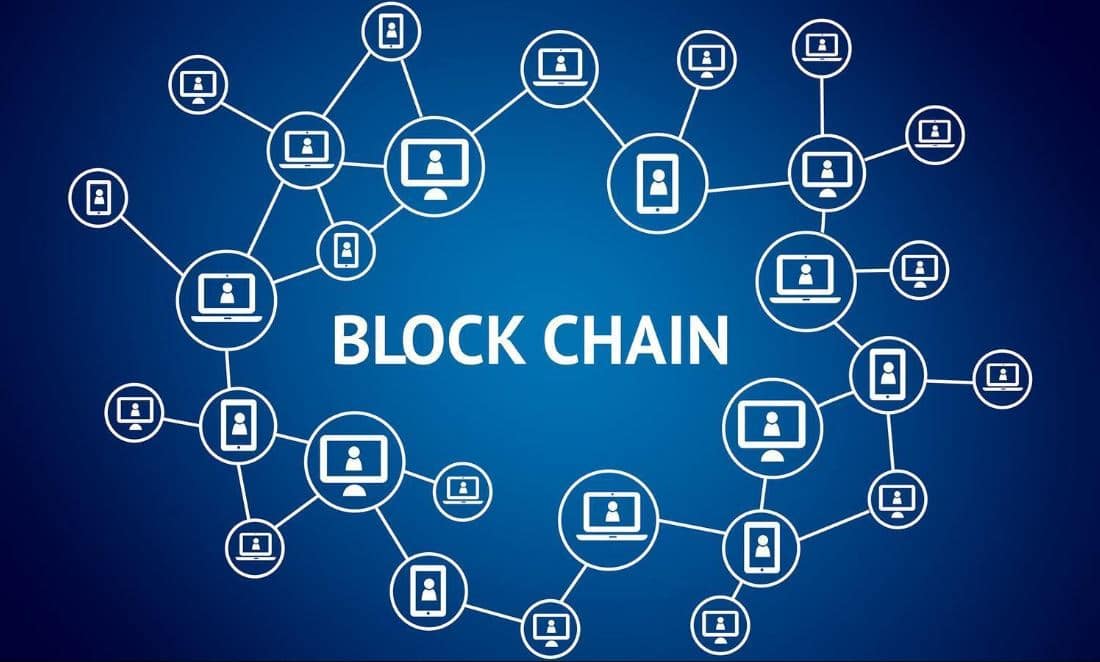Depending on who you ask, blockchain may be humanity’s greatest Ponzi scheme or the solution to everything from cancer to credit card transaction fees. The reality most certainly lies somewhere in between.
When we theorize about the future of disruptive tech, the internet is always a central point of comparison. The internet proved revolutionary for networks. The internet allowed the network to expand beyond the pages of a phonebook to include international digital marketplaces (eBay and Amazon), billion user social networks (Facebook), sizeable professional networking platforms (LinkedIn), and new forms of media distribution (Netflix, YouTube, and Spotify). The internet even provided new solutions for digital storage and computing through services such as AWS and iCloud. While its true that the core of some industries remained untouched – think industries such as manufacturing – their methodology for obtaining and distributing their goods did not.
However, while the internet allowed our social networks to grow to unprecedented levels, these networks largely outgrew the physical institutions that govern and protect human interactions (courts, governments, police). What blockchain and other distributed ledger technologies (DLT – a term encompassing all relevant technologies, not just blockchain) enable is a new trust layer for our digital world. The implications of this are enormous.
DLT’s potential to disrupt revolves mainly around its ability to enable automated, programmable trust on digital networks via smart contracts, as well as the ability to allow scarce digital assets. With these two core components, we can create complex, autonomous, decentralized organizations and frameworks, and transact and share real value across these networks with no third party involvement. But these are just buzzwords without an understanding of the actual real-world applications. If Netflix replaced Blockbuster, iTunes and Spotify replaced record and CD stores, Wikipedia and Amazon the library, and emails and Facebook the letter, what will DLTs replace?
 The areas most ripe for disruption are industries or networks that require intermediaries to operate. Intermediaries are expensive — they charge fees for their involvement — and they necessitate a level of trust in their reputation, ability to securely store information, and not collude with unfriendly actors. eBay charges fees, Facebook and Google, monetize user data, iTunes and Spotify provide little kickback to the actual artists, and Amazon and Apple are vulnerable to data breaches when storing user data in the “cloud.” DLT provides a framework for these applications to operate without the involvement of these middlemen.
The areas most ripe for disruption are industries or networks that require intermediaries to operate. Intermediaries are expensive — they charge fees for their involvement — and they necessitate a level of trust in their reputation, ability to securely store information, and not collude with unfriendly actors. eBay charges fees, Facebook and Google, monetize user data, iTunes and Spotify provide little kickback to the actual artists, and Amazon and Apple are vulnerable to data breaches when storing user data in the “cloud.” DLT provides a framework for these applications to operate without the involvement of these middlemen.
The following are industries ripe for disruption by distributed ledger technology.
Digital Identity
 Instead of submitting personal details every time a user signs up for services, DLT provides the ability to digitize one’s identity and maintain 100% control over who gains access. Projects like Sovrin and Civic are providing solutions for users in managing their digital identity.
Instead of submitting personal details every time a user signs up for services, DLT provides the ability to digitize one’s identity and maintain 100% control over who gains access. Projects like Sovrin and Civic are providing solutions for users in managing their digital identity.
Social Media
DLTs can provide the ability for micropayments, enabling users to earn money on their content and posts. Steemit is similar to Reddit except publishers and producers are paid when their content is upvoted. In addition, because of the open source nature of DLT, users retain control over their data when using decentralized social networks. If the network begins misusing or mistreating its users, users are free to transition to another network, along with their data, seamlessly.
Crowdfunding
Crowdfunding has been, up until now, the most widely used application for DLT. Initial Coin Offerings have offered an alternative fundraising mechanism than IPOs or GoFundMe. Platforms such as Ethereum, NEO, and soon-to-be-released EOS allow companies to sell their unique ecosystem token for more traditional digital assets such as Ether or Neo, which are then used to bootstrap development. Also, projects such as SALT enable a decentralized lending platform, where users receive fiat in exchange for collateralizing their cryptocurrencies.
Healthcare
Projects such as Patientory provide a solution for healthcare institutions. DLT can enable customers to maintain their information and connect trustlessly with the professionals who need their info. In addition, DLT ensures that healthcare institutions maintain the safety and integrity of patients’ data.
Computing and Storage
Today, those looking for storage or high computational power are limited to two options: purchase the hardware themselves or outsource to cloud computing companies such as Amazon or Microsoft. However, DLT can enable average people and businesses to rent their excess computing power and storage on a marketplace. Smart contracts ensure that both parties uphold their end of the transaction.
Advertising
 The advertising industry is also ripe for disruption. Projects such as Basic Attention Token (BAT), KindAds, and AdEx are looking to disrupt the traditional role middlemen play in the industry, ensuring that the revenues are shared only by advertisers, publishers, and users. The platforms also incentivize users with micropayments to turn off their adblockers or even interact with ads.
The advertising industry is also ripe for disruption. Projects such as Basic Attention Token (BAT), KindAds, and AdEx are looking to disrupt the traditional role middlemen play in the industry, ensuring that the revenues are shared only by advertisers, publishers, and users. The platforms also incentivize users with micropayments to turn off their adblockers or even interact with ads.
Any rental business model (like Airbnb or Uber)
 While companies such as Airbnb and Uber disrupted the rental and taxi industries, these companies still serve as middlemen to their respective sectors, taking a large percentage of transaction fees. DLT is ideally suited to create automated and autonomous marketplaces where coded smart contracts take the form of intermediaries. BeeToken is one example; they’re looking to disrupt the apartment-sharing industry.
While companies such as Airbnb and Uber disrupted the rental and taxi industries, these companies still serve as middlemen to their respective sectors, taking a large percentage of transaction fees. DLT is ideally suited to create automated and autonomous marketplaces where coded smart contracts take the form of intermediaries. BeeToken is one example; they’re looking to disrupt the apartment-sharing industry.
These examples are only a few use cases for decentralized ledger technologies such as blockchain. The power of DLT is that it’s a tool for innovation, a foundation on which to build skyscrapers. The development of Ethereum, a platform for application development, proved monumental to the industry. However, as the ecosystem progresses towards more scaleable models, the potential to develop innovative, disruptive, decentralized technologies will explode. Even those who saw the early vision of the internet couldn’t imagine the way Instagram, PayPal, Google, Amazon, Facebook, or Twitter have impacted the world. For now, all we can continue to do is dream, educate, and develop towards a better tomorrow.
With so much happening and at such a fast pace it can be tough to keep up with all that’s happening in the world of crowdsourcing and the crowd economy. So how about you make a date to attend our CSW Global 20018 conference in Washington DC running though 24-28 October? There will be true industry-leader speakers and practitioners from around the world sharing their latest thoughts, observations and outcomes of their latest disruptive, decentralized, crowdsourcing activities. Tickets registration is open with some early-booker benefits, we hope to see you there.





0 Comments